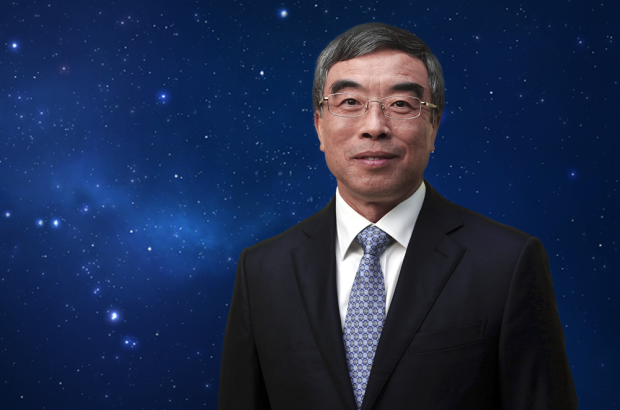- Daily & Weekly newsletters
- Buy & download The Bulletin
- Comment on our articles
Huawei’s Liang Hua: Open innovation and collaboration powers the digital era
Today at Web Summit 2020 in Lisbon, Liang Hua, Chairman at Huawei delivered a keynote speech presenting his views on the ICT industry and the digital future of a new era of intelligence.
In front of the audience of Europe’s most important digital conference, Mr. Liang outlined his vision of a fully connected, digital world that will drive the industry and the digital economy forward: “Digital innovation is taking us to a new era of intelligence. A smarter, better, and greener life is on the horizon. Many disruptive technologies will be the driving force. Connectivity and computing are central to this transformation.”
Digitalization brings a new era of intelligence
Mr. Liang predicted that by 2025, more than 30 percent of the global GDP will be generated by the digital economy and pointed out the key trends contributing to this revolutionary shift towards digital:
- By 2025, 5G will serve more than half of the global population.
- Cloud computing, AI, VR/AR, and 4K/8K ultra-HD video will change everything.
- High-definition live broadcasting and glasses-free 3D will create truly immersive experiences, transforming remote education and virtual entertainment.
- Wearables will become a “mobile hospital”, helping track fitness on the go – potentially benefiting over one billion people with chronic illnesses.
- Matured photonic-, quantum- and biological computing will enable a more hybrid and heterogeneous computing architecture, greatly reduce energy consumption while processing massive amounts of data.
“Together, this will further drive our industry and the digital economy forward and – at the same time – enable immersive experiences for consumers, improve governance digitize industries more rapidly”, Mr. Liang added, predicting a spillover effect also to the wider economy: “Europe has a strong industrial base and ability to innovate. The convergence of 5G, cloud, and AI will further help manufacturing go digital, improve productivity, and create new value.”
Digitalization presents huge opportunities for Europe
While European countries had already prioritized applying digital technologies to everyday lives, they would be essential for Europe’s long-term transition to a fairer, more prosperous society, Mr. Liang explained:
- For smaller and medium enterprises, the digital economy presents more opportunities than challenges, as it allows SMEs to communicate and do business in new, seamless ways, better serve customers in remote areas, and make informed business decisions.
- Healthcare is an area where technology could make a big difference. New technologies like 5G, cloud, and AI have helped us fight the virus and speed up vaccine research. Particularly in a time of pandemic, technology already means hope through telecommuting, video conferencing, online education and more.
- Through its contribution to the effective implementation of the EU’s Green Deal, the new digital way of living and working also helps reduce the carbon footprint through lower energy consumption, less urban expansion, and more efficient urban management – among other things.
“Despite such exciting potential, the digital economy also presents some challenges”, Mr. Liang warned. “The more we use a technology, the more we need standardization and governance. We need better privacy protection, and transparent and actionable trust mechanisms. And we can only create real business value through data by building a global governance system that is open, collaborative, secure and trustworthy. This is how we will drive healthy industry development.”
Building an open, transparent, and greener digital world for shared success
Mr. Liang called on the participants of Web Summit to create an industry ecosystem built on open collaboration: “We are at a critical tipping point. ICT and other technologies are merging to drive industry digitalization. This is a key moment to grow the digital economy. Companies must work with partners and customers from different industries to drive innovation and create more opportunities. Only a fully connected world will be able to manage the digitalization wave, balance economic growth with environmental protection and address the other challenges we face.”
Huawei has been in Europe for 20 years, currently employing more than 10,000 people. The company has invested more than one billion US dollars in R&D and shares value with the wider ecosystem, joining hands on innovation and talent development to reduce the cost of digital transformation. Mr. Liang closed by highlighting Huawei’s commitment to Europe: “We will keep working with our local partners to help Europe continue to succeed in digitalization and sustainability.”
Web Summit is considered to be one of the world’s largest technology conferences with more than 100,000 attendees and 800 speakers, bringing together the people and companies leading the global tech industry: https://websummit.com/














